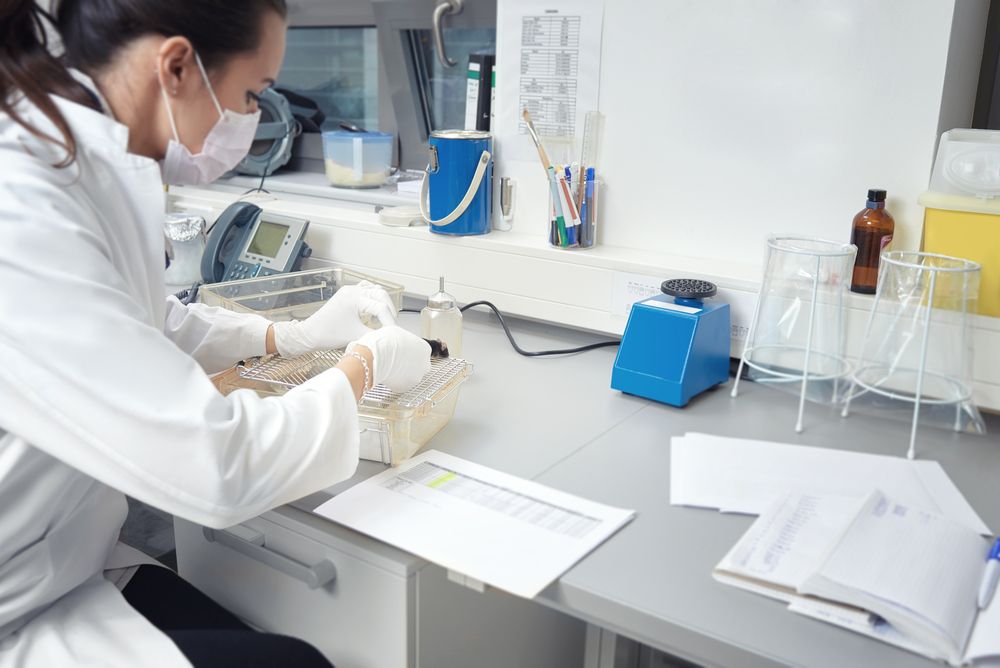Page 10288
A new approach to treating diabetes sees gene therapy altering other cells in the pancreas so they produce insulin to replace the beta cells that are attacked by the immune system.
Progress has been made towards a potential solution to type 1 diabetes. The novel approach seeks to cure type 1 diabetes and to allow type 2 diabetics to stop using insulin shots by altering other cells in the pancreas so they produce insulin.
The research team based at UT Health San Antonio have found a way to increase the types of pancreatic cells that secrete insulin. The team are now moving towards starting clinical trials in the next three year but they are first testing the approach in larger sized animals, these studies are believed to cost an estimated $5 million.
Jul 5, 2017
NASA will use artificial intelligence for planetary defense
Posted by Brett Gallie II in category: robotics/AI
Combination of machine learning and efforts by research scientists seen as a powerful tool.
Jul 5, 2017
Rejuvenation is good for your loved ones
Posted by Nicola Bagalà in categories: biotech/medical, life extension
An article discussing the benefits of rejuvenation for your friends and family.
Rejuvenation biotechnologies would bring significant benefits to individuals, but these benefits would indirectly extend to their families and friends too. The ways they can benefit from the rejuvenation of others might be not so obvious, so let’s have a look at them together.
Nearly everyone knows how terrible it is to lose people dear to you. Maybe your grandparents died when you were a child, and that might have been your first encounter with death, at an age when you still couldn’t properly comprehend it. Maybe it happened suddenly, or maybe your grandparents have suffered for long before passing away. Eventually, the moment comes when you start thinking that the same fate awaits your parents, your siblings, your friends. Rejuvenation would spare you seeing your elderly relatives and friends wilt away, suffer and die, because none of that would happen to them. Of course, rejuvenation would spare this pain to your friends and relatives too. Your children and grandchildren would never have to see you become sicker and sicker as you age, and would never—in principle—have to bury you. Today, being 80 means you often have to attend the funeral of a dear friend who passed away. People who have been important parts of your life just keep dying.
Jul 5, 2017
Synergy Between Torah and Science: How Far is TOO Far?
Posted by Zoltan Istvan in categories: biotech/medical, life extension, robotics/AI, science, transhumanism
This is one of the first articles I’ve seen specifically on #Judiasm and #transhumaism, with input by rabbis. Naturally the article is cautious, but interesting too.
Transhumanism, an intellectual and cultural movement supporting the use of science and technology to improve human mental and physical characteristics and capacities, a concept once limited to the realm of science-fiction, is now becoming more of a reality than ever before. The once outlier philosophy is quickly becoming mainstream, an accepted part of the social conscience that is the new religion for the anti-religious, including its own Messianic vision.
There are many aspects to the transhumanism philosophy, often abbreviated as H+ or h+, including physical longevity through medical breakthroughs and/or merging mankind with machines. Many transhumanists advocate transferring the sum total of a person’s knowledge and experiences into a computer and recreating the individual as a form of artificial intelligence ( AI ) in order to extend an individual’s life.
Continue reading “Synergy Between Torah and Science: How Far is TOO Far?” »
Jul 5, 2017
Revita Life Sciences Continues to Advance Multi-Modality Protocol in Attempt to Revive Brain Dead Subjects
Posted by Ira S. Pastor in categories: bioengineering, biotech/medical, cryonics, futurism, genetics, health, life extension, neuroscience, posthumanism
Rudrapur, Uttrakhand, India — July 02, 2017
Revita Life Sciences, (http://revitalife.co.in) a biotechnology company focused on translational regenerative therapeutic applications, has announced that it is continuing to advance their novel, multi-modality clinical intervention in the state of brain death in humans.

“We have proactively continued to advance our multi-modality protocol, as an extended treatment before extubation, in an attempt to reverse the state of brain death” said Mr.Pranjal Agrawal, CEO Revita Life Sciences. “This treatment approach has yielded some very encouraging initial outcome signs, ranging from minor observations on blood pressure changes with response to painful stimuli, to eye opening and finger movements, with corresponding transient to permanent reversal changes in EEG patterns.”
Jul 5, 2017
Apocalypse, now? The 10 biggest threats facing civilisation, from asteroids to tyrannical leaders
Posted by Derick Lee in categories: existential risks, law, robotics/AI
The team, made up of highly educated academics, lawyers, scholars and philosophers, form the Centre for the Study of Existential Risk (CSER, commonly referred to as “caesar”) and the Leverhulme Centre for the Future of Intelligence. At times of global threat, the experts meet to assess the biggest threats facing Earth and what can be done to save civilisation from the impending apocalypse.
Jul 5, 2017
Carbon nanotube reinforce Composites can reduce space vehicle mass
Posted by Klaus Baldauf in categories: computing, nanotechnology, space, transportation
NASA’s Space Technology Mission Directorate (STMD) is keenly interested in nanotechnology – an approach that can reduce the mass and improve the performance of aerospace systems. NASA computer modeling analysis has shown that composites using carbon nanotube reinforcements could lead to a 30 percent reduction in the total mass of a launch vehicle.
“No single technology would have that much of an impact to reduce the mass of a launch vehicle by that much,” explains Michael Meador, Program Element Manager for Lightweight Materials and Manufacturing at NASA’s Glenn Research Center in Cleveland, Ohio.
Tensile properties of a carbon nanotube fiber-based composite tank were tested in a May 16 test flight.
Continue reading “Carbon nanotube reinforce Composites can reduce space vehicle mass” »
















